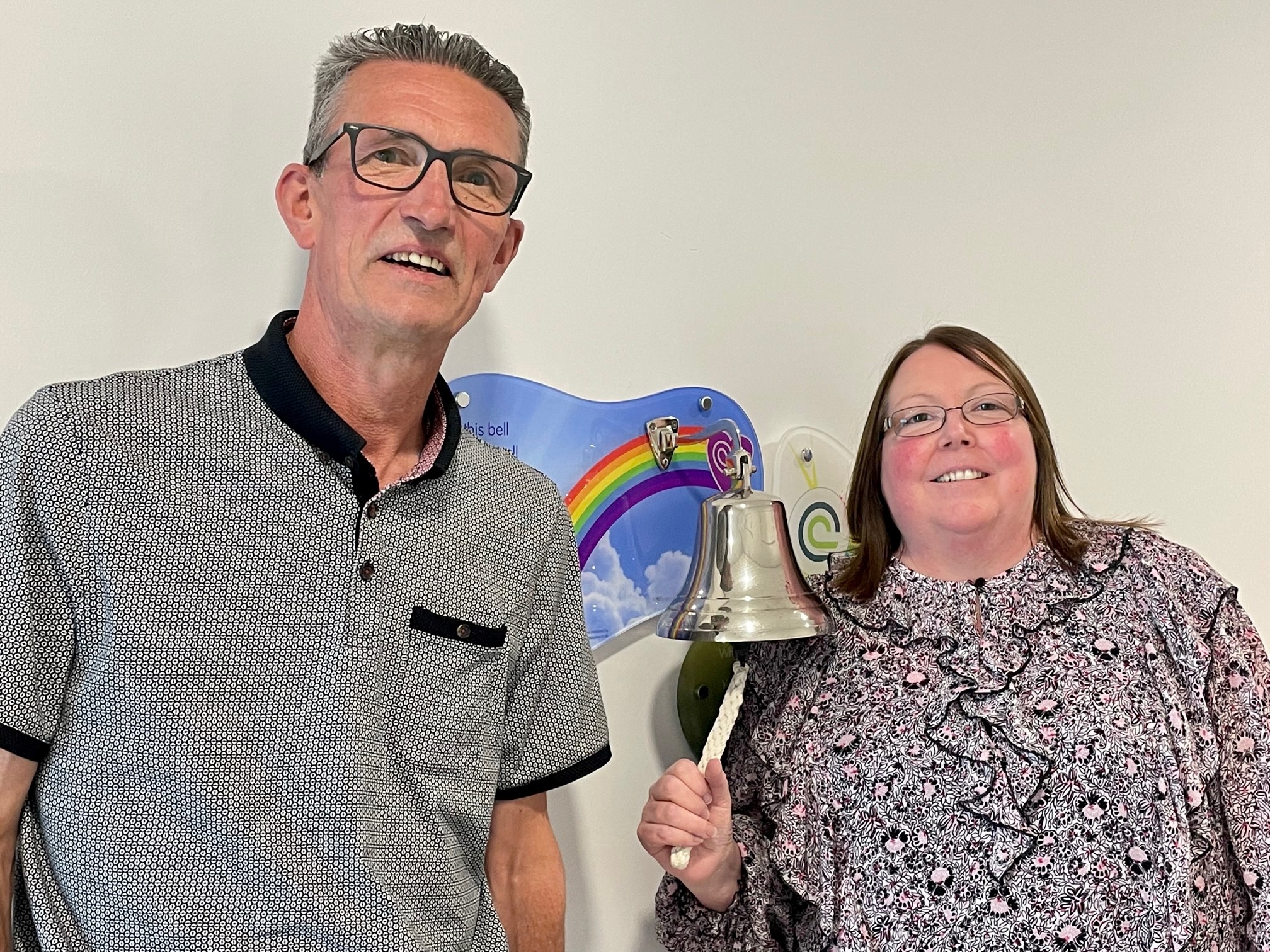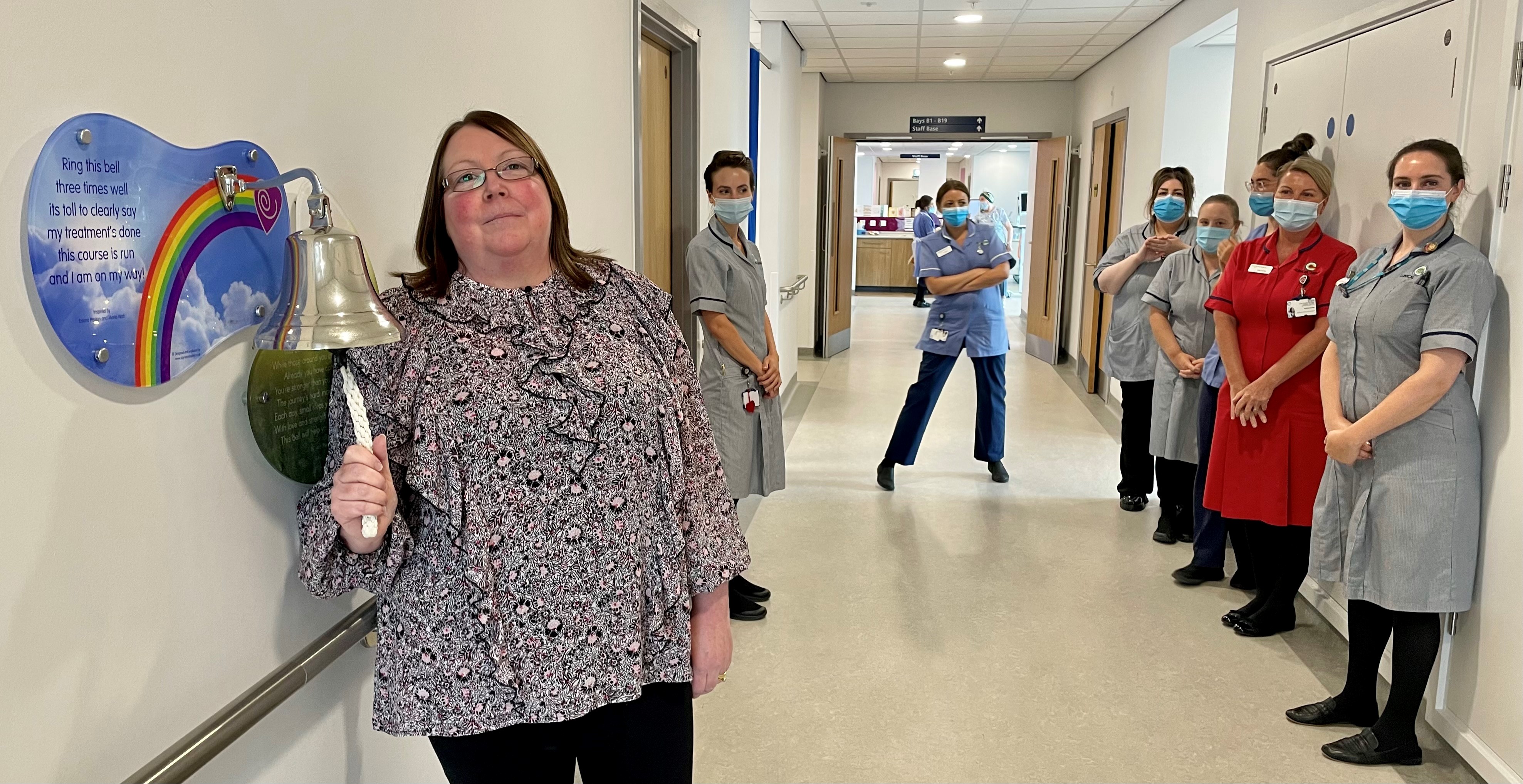Clatterbridge patient given new future after treatment on a clinical research trial
Posted 21st November 2022

A woman with a mystery skin cancer that spread to her brain and neck has finished ground-breaking treatment on a clinical research trial at The Clatterbridge Cancer Centre and is now looking forward to her future.
Ann Johnston was diagnosed with melanoma (a form of skin cancer) in 2018 after it was found in her lymph nodes, which are often involved in melanoma. She went to see her GP with what she thought was a pulled muscle in her groin, but after tests she was told it was cancer.
The site of the skin cancer on her body could not be tracked down but as it had already moved to her lymph nodes, there was a high chance it had already spread further.
After surgery to remove some of her lymph nodes, Ann was told the devastating news that melanoma had been discovered in her brain. She was given intense radiotherapy and then surgery to tackle it, followed by immunotherapy with a drug called nivolumab, but unfortunately the cancer later came back in her neck. She was then started on targeted therapy but the cancer grew further.
As the cancer was spreading, Ann, from Kirkdale, in Liverpool, was offered the chance to have pioneering treatment – oncolytic virotherapy – as part of an early stage clinical research trial at The Clatterbridge Cancer Centre.
This treatment uses a virus – injected into the cancer lesions – that has been altered to make it specifically attack the cancer cells and also to train the body’s own immune system to fight the cancer, hopefully reducing it over time and targeting it wherever it may appear in the future.
Ann has seen the personalised treatment shrink her tumours over time and now – after two years of therapy with injections every two weeks – she has been able to finish it. She marked the occasion by ringing the end of treatment bell at Clatterbridge Cancer Centre – Liverpool.
Ann, who is mum to daughter Rebecca and a grandmother of 10-month-old Isla, said: “The past four years have been a rollercoaster for me and my family. My cancer diagnosis came totally out of the blue – it was a real shock. I was feeling perfectly well and I just thought I had pulled something when I had the pain in my groin.
“I’m really pleased I went to get it checked out when I did – I hate to think what would have happened if I had left it longer. They could not find the origin of the cancer – they think it may have been a mole that had died off.
“I was pleased to be offered the chance to go on a clinical trial. I’m an optimistic person and I know new treatments for cancer are being found and tested all the time.”
Ann said an emotional farewell to the treatment team at Clatterbridge Cancer Centre – Liverpool but will continue to have scans every three months to monitor the melanoma. She is now hoping to eventually return part time to her job in the womenswear section of Liverpool’s John Lewis store and spend more time with Rebecca, Isla, and husband, Will.
She added: “The melanoma in my neck has been shrinking and it is now seems stable. Hopefully, it will not flare up. I’ve stayed positive and have been helped by my fantastic family and work colleagues.
“I would recommend people join a clinical research trial if they are invited to. Being on a trial brings you hope. It gives you the chance to have a new treatment and you also know you are helping to find new ways to fight this disease for people who come after you with a diagnosis of skin cancer.”
Ann’s consultant at Clatterbridge, medical oncologist Dr Joseph Sacco, said: “We are really delighted that Ann has responded so well to this treatment. The use of viruses to attack and control cancer is still in relatively early stages of evaluation.
“We believe, however, that this class of treatment has huge potential, even where multiple other treatments have failed, and that in future this virus – RP1 – and related agents will improve outcomes for many more cancer patients.”

